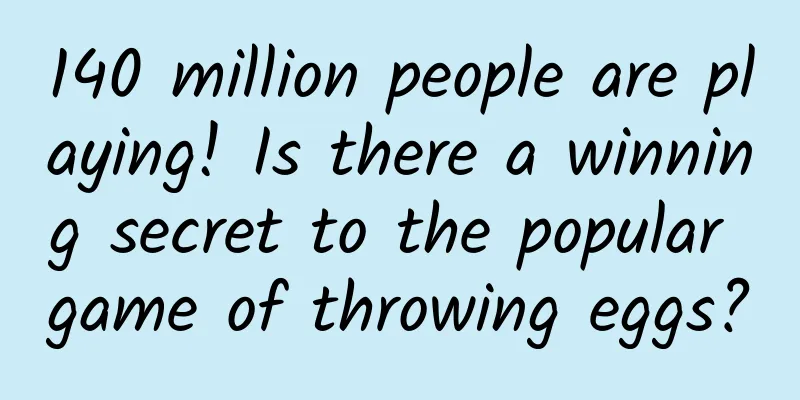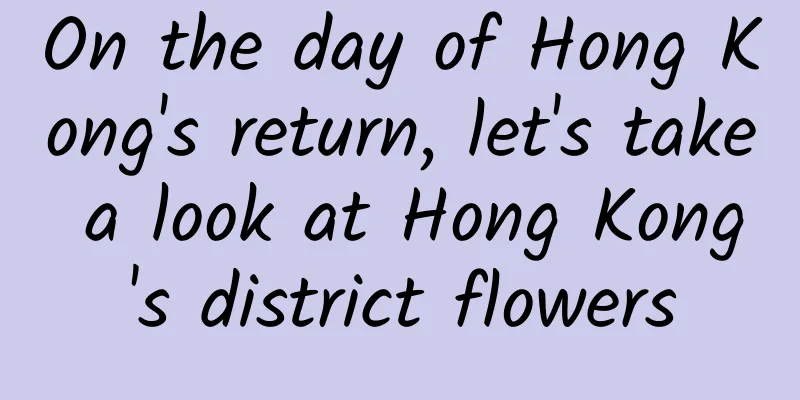140 million people are playing! Is there a winning secret to the popular game of throwing eggs?

|
During the Spring Festival, in addition to eating and drinking, many people also participate in some sports with relatives and friends, such as throwing eggs . Throwing eggs is a card game that originated and became popular in Huai'an City, Jiangsu Province and its surrounding areas. The slogan of "throwing eggs" is "If you don't play throwing eggs before a meal, it's like you haven't eaten. If you don't play throwing eggs after a meal, it's like you've eaten nothing." In recent years, this slogan has become popular in all circles across the country. Image source: Weibo screenshot In 2017, Huai'an Throwing Eggs was listed as a "National Fun Chess and Card Game Official Competition Event" by the Chess and Card Sports Management Center of the State General Administration of Sports. In 2023, the General Administration of Sport of China held the National Throwing Eggs Open, and there were even news reports that 2023 was the "First Year of Throwing Eggs." Notice from the State Sports General Administration Chess and Card Sports Management Center Image source: Internet screenshot As the Spring Festival is approaching, people are returning to their hometowns to celebrate the New Year. Throwing eggs may "penetrate" into wider areas along with the influx of people returning home. In that case, is it possible to learn a winning strategy for throwing eggs in advance, so that you can become a famous "throwing eggs master" in the surrounding area? Is there a winning strategy for throwing eggs? In fact, there is no winning strategy in mahjong. In 1913, mathematician Ernst Zermelo proposed the "Zermelo theorem," which states that "in a finite game between two people, if both players have perfect information and luck is not involved in the game, then one of the two players who moves first or second has a winning strategy." If you are not familiar with the rules of throwing eggs, you can simply understand it as a competition between two people in a team, with a total of 4 people participating. In addition, luck is involved in the process of throwing eggs. For example, you can use some strategies to make a bad hand of cards easier to play, but you still can't stand the opponent's hand full of bombs. In addition, games like throwing eggs are imperfect information games, that is, although everyone knows the rules of playing cards, they do not know what cards the opponent has in his hand. In addition, the process of playing cards involves human factors, and it is difficult for you to know what strategy your opponent will use. For example, when you can make a pair or a straight, some people will play a straight, and some will play a pair. Copyright images in the gallery. Reprinting and using them may lead to copyright disputes. You can't even be sure that your teammates will help you. For example, when you have only one card left in your hand, your teammate may throw a pair. These factors make it impossible to have a winning strategy in Pai Gow. Similarly, there is no winning strategy in games like Mahjong and Landlord. It is precisely because of the randomness of games like Pai Dan that people are willing to play them over and over again. Moreover, Pai Dan cards are played one level at a time, and a big game often takes one or two hours to play, which makes it a great tool for killing time before and after meals. Is there really a winning strategy for the game? Many people may not know that many of the games we play in our daily lives actually have winning strategies. To make it easier to understand, let's start with the more familiar "tic-tac-toe". Tic-tac-toe is to draw "X" and "O" alternately on a "well"-shaped board. Whoever connects a line first wins. Tic-Tac-toe Image source: Wikipedia Here is a clarification. Some people may think that as long as the first player occupies the middle position, they will win. But this is not true. The winning strategy of the first player in Tic-Tac-Toe is to occupy a corner. If the first player does not occupy this position, the second player can also occupy this position and still remain undefeated (if you don’t believe it, you can ask someone to try it). In fact, the method to find a winning strategy for tic-tac-toe is very simple and crude. We just need to draw out all the possibilities of the game and find a move that will never fail. The strategy of winning by taking the first move Image source: Wikipedia Not only Tic-Tac-Toe, many games have similar winning (inevitable) strategies. Take Tic-Tac-toe as an example. Tic-Tac-toe is a finite game for two people (it will eventually end), both sides know how they and their opponents can move, and this game does not involve luck. Therefore, according to Zermelo's theorem, such a game must have a winning (unbeatable) strategy. In addition to Tic-Tac-toe, the common chess, international chess, Go, etc. all belong to this type of games. So theoretically, these games also have winning strategies, but it is too difficult to find their winning strategies. For example, Tic-Tac-toe is a very simple game. When the second step is listed, there are already 12 possibilities. In fact, the complexity of its game tree is 10 to the fifth power. Tic-tac-toe "game-tree" Image source: Wikipedia The complexity of the game tree for Chinese chess is 10 to the 150th power, and that for Go is 10 to the 360th power. Therefore, even with a computer, it is impossible to exhaustively enumerate all the possibilities (AI does not need to exhaust all possibilities when playing chess). So according to the "Zermerlo Theorem", there are winning or losing strategies in these games, but they have not been found yet. Have you played the game of throwing eggs during the Spring Festival? It should be noted that there is nothing wrong with playing the game of throwing eggs with relatives and friends for entertainment during the Spring Festival, but remember not to participate in gambling. In addition, even if you play the game of throwing eggs, don't forget to eat. After all, whether you play the game of throwing eggs "before" or "after" a meal, the most important information is "meal". References [1] https://www.sport.gov.cn/qpzx/n5384/c25564184/content.html [2] Schwalbe U, Walker P. Zermelo and the early history of game theory[J]. Games and economic behavior, 2001, 34(1): 123-137. [3] https://en.wikipedia.org/wiki/Game_complexity#Game-tree_complexity Planning and production This article is a work of Science Popularization China-Starry Sky Project Produced by: Science Popularization Department of China Association for Science and Technology Producer|China Science and Technology Press Co., Ltd., Beijing Zhongke Xinghe Culture Media Co., Ltd. Author: Science Scraps Popular Science Creation Team Reviewer: Dai Teqi, Associate Professor of Beijing Normal University Planning丨Lin Lin Editor: Wang Mengru |
<<: Early stars may not have died! They left us a bubble
>>: Don't over-clean these 4 parts of your body, or you may harm yourself
Recommend
Three groups of people in Beijing must undergo comprehensive nucleic acid testing! Which three groups of people are you referring to? Attached is the latest epidemic situation!
In order to further improve epidemic prevention a...
Price inquiry for the production of Dafeng Home Textile Mini Program. How much does it cost to produce Dafeng Home Textile Mini Program?
According to industry insiders, mini programs wil...
While others are grabbing red envelopes, programmers are studying red envelope algorithms
The popularity of WeChat red envelopes during the...
Successfully cut ties! Huawei sells off its "Wenjie" trademark at an ultra-low price of RMB 2.5 billion, and its partners are finally relieved
Whose car is it? Seres? Huawei or AITO? Huawei ha...
Orange warning! It’s not too late for those who use sunscreen to know this →
Compiled by: Gong Zixin Not long ago The painful ...
How effective is Momo advertising? Explanation of Momo advertising!
In the past two years, mobile Internet has been e...
Ideal responds to the Ideal ONE fire, which may be caused by iron sheets piercing the high-pressure oil pipe
Although new energy vehicles are the general tren...
After spending 5 million, I found out that this is how OCPC, the information flow advertising, works!
Nowadays, many lead-based advertisers are no long...
Why I think the saying that everyone is an operator is more reliable than that everyone is a product manager!
I have been thinking about the relationship betwe...
Extremely cold zone, how do these creatures survive in the Arctic?
Produced by: Science Popularization China Author:...
South Korea and France team up to develop driverless car technology
South Korea's trade minister recently announc...
The king of volume kings, value first, the dark blue SL03 is priced at 145,900-191,900
On August 25, the newly upgraded Deep Blue SL03 w...
Why are vaccines never given in the buttocks? Why are they only given in the arm, which is super painful?
inject That may be everyone's childhood shado...
Is the agency fee for Xiamen appointment mini program high? Xiamen appointment app agency fee list
How much does it cost to be an agent for an appoi...
Price inquiry for the production of Qianxinan Shoes and Boots Mini Program. How much does it cost to produce Qianxinan Shoes and Boots Mini Program?
WeChat Mini Program is an application that users ...









